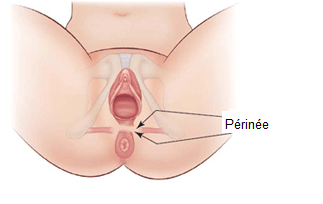Prééclampsie
J’ai les pieds, les mains gonflés, que dois-je faire ?
J’ai les pieds, les mains gonflés, que dois-je faire ?
I have to return to work, what should I do about breastfeeding?
Returning to work depends on your contract and your employer. Depending on your wishes or your options, you can continue breastfeeding, for example the morning and evening milk can be stored. You can express your milk and keep it in the fridge to provide meals for your baby during the day. The alternative is weaning, either by spacing feedings to reduce milk secretion, or by using appropriate drugs. Prepare for your return to work by contacting a breastfeeding professional.
Je dois reprendre mon travail, comment faire avec l’allaitement ?
How do I care for my perineum?
Whether your perineum is stitched or not, it requires hygiene care. It is important to:
The stitches heal and the threads are spontaneously resorbed within about ten days.
Perineum care :
Perineal rehabilitation (strength training for the perineum) is important, and can be started within the first two months after childbirth.
 Qu’est-ce que le périnée ?
Qu’est-ce que le périnée ?
Le périnée (ou plancher pelvien) est un ensemble de muscles qui ferme le bas du bassin et comporte trois orifices: le méat urinaire, le vagin et l’anus. Il joue un rôle important pour la continence urinaire et anale en soutenant, comme un hamac, la vessie, l’utérus et les intestins.
I have hemorrhoids, what should I do?
Pregnancy can lead to hemorrhoids. They are due to the compression of the uterus on the large blood vessels, a hormone (progesterone) and constipation. Hemorrhoids can be painful and can result in bleeding, but they do not represent a risk to your baby.
Talk to your physician.
Practical advice:
J’ai des hémorroïdes que dois-je faire ?
Les hémorroïdes peuvent être favorisées par la grossesse. Elles sont dues à la compression de l’utérus sur les gros vaisseaux sanguins, à une hormone (la progestérone) et à la constipation. Les hémorroïdes peuvent être douloureuses et saigner, cela ne représente pas de risque pour votre bébé.
Parlez-en à votre médecin.
Conseils pratiques :